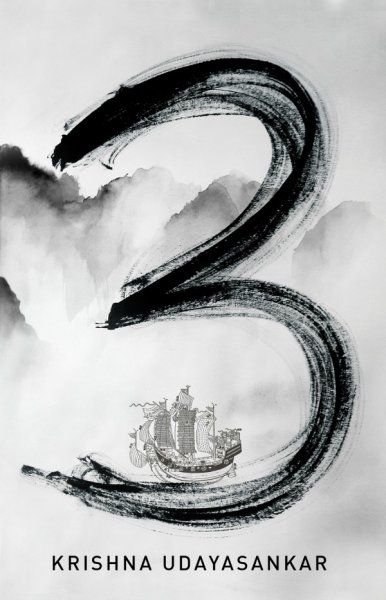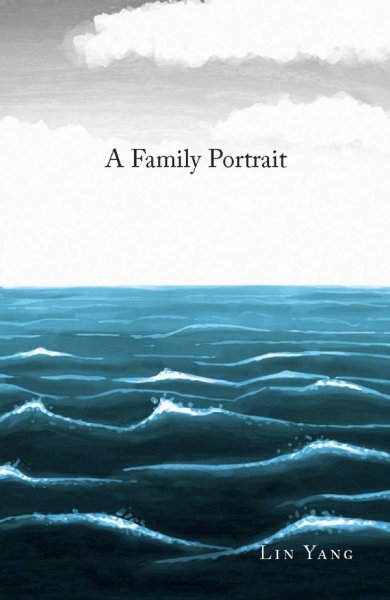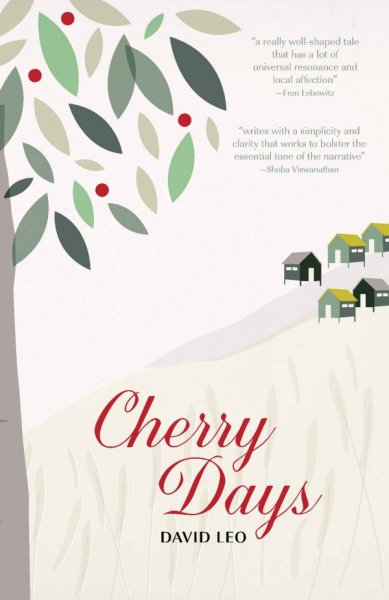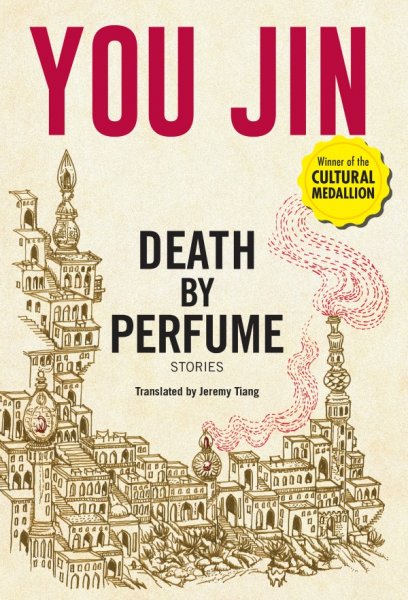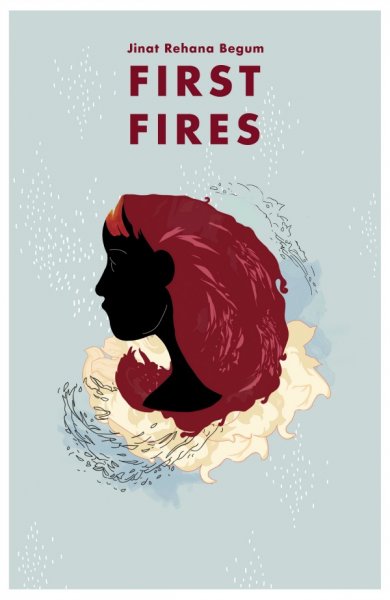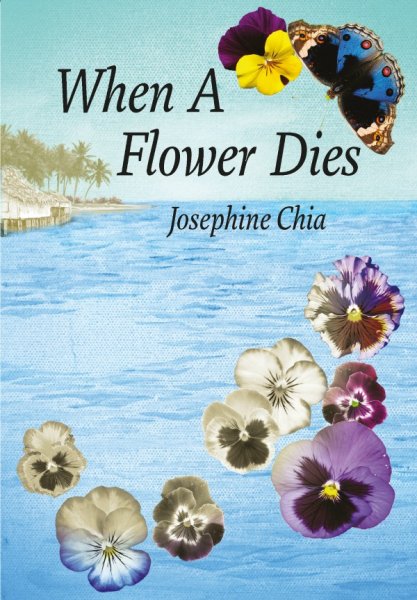If you’ve checked out the local lit scene lately, chances are, you’ve been to more poetry readings than book launches, the SWF not withstanding. And while it’s cool to buy local chapbooks and small releases, we can’t deny that there are plenty of novelists hard at work publishing their stories. From the long-awaited sequel to “Spider Boys” and the re-imagining of the Sang Nila Utama legend, here’s what to check out at your local bookstore.
3 by Krishna Udayasankar (Ethos Books)
A nerdy business PhD grad, this novelist also as a fantasy triology under her belt: The Aryavarta Chronicles, a reimagining of the Mahabharata. In her new book, 3, Udayasankar does something similar with the well-known 13th century Sang Nila Utama legend. The protagonist, Nila Utama, sails and comes to a turbulent village, where he has to face his inner demons and learn how to be king. Part coming-of-age story, part historical fiction, this is a read for history geeks.
A Family Portrait by Lin Yang (Ethos Books)
Lin Yang’s debut novel revolves around Fang, who receives the news that her grandmother is dead. She goes on a journey to China and learns about her family’s past. Set in both socialist China and Singapore, the novel deals with the destructive power of families. If Lin Yang’s name is familiar, that’s because some of her travelogues have appeared in Lianhe Zaobao Singapore.
Big Mole by Ming Cher (Epigram Books)
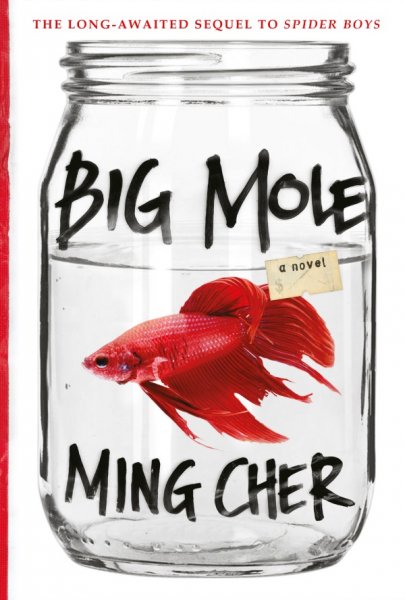
If you haven’t read Ming Cher’s Spider Boys, a rare novel written in Singlish, back in 1995, do it before getting to this sequel, also written in Singlish. The titular character runs an ornamental fish shop with her boyfriend Hong and has an unlucky mole under her eye. When their best friend is killed on his first day as a secret society gangster, the protagonist somehow gets involved in a mass murder with the police hot on her trail. Fun fact–the author himself was a street drifter, too, which lends to the realism of this book.
Cherry Days by David Leo (Ethos Books)
Known for writing The Fragrance of Durians & Other Stories and receiving the Singapore Literature Prize commendation in 1995, Leo’s latest book is set in the ’50s, and is kind of like Spider Boys, sans the gangsters. In it, Skinny and his friends grow up in a kampong and go through the aftermath of WWII. Leo’s book is a series of observations on the urbanization of the country, the emancipation of its women as well as the social movements and riots that pervaded that era.
Death by Perfume by You Jin (Epigram Books)
Translated by Jeremy Tiang (who has done some work with lots of big names in the Chinese lit scene) and written by Cultural Medallion winner You Jin, this novel is about a Singaporean writer who begins living in Jeddah with an infant son. The novel also contains vignettes from other characters like a divorced engineer whose camel-like appearance affects his life, an expat wife with a spending problem and a security guard who escapes reality by drinking perfume.
First Fires by Jenat Renaha Begum (Ethos Books)
Set in Singapore, this family saga begins when a father decides to have a third child despite the two-child policy. The father wishes for a son, but a daughter, Sal, is born and he whispers something secret into her ear. As an adult, Sal goes through her personal struggles and tries to reach out to her father and fight her inner demons. The author holds a PhD in 19th century novels, so lit nerds may catch some of her references in this one.
It Never Rains on National Day by Jeremy Tiang (Epigram Books)
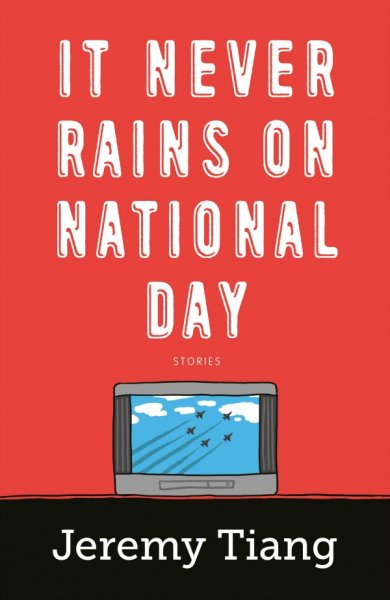
if you’ve picked up a book by You Jin, Yeng Pway Ngon or Zhang Yueran, chances are that it’s Jeremy Tiang who translated it. Now trying his hand at fiction, It Never Rains on National Day is a series of vignettes of Singaporeans overseas–a Singaporean woman is coming to terms with living in Beijing while her British husband is waiting for a heart transplant, and a woman meets another Singaporean on a train in Norway. The novel travels around the globe to show how Singaporeans around the world spend their National Day, and touches on themes of displacement and belonging.
When a Flower Dies by Josephine Chia (Ethos Books)
Known for her memoir about her village, Kampong Spirit, Gotong Royong: Life in Potong Pasir 1955 to 1965, which won the Singapore Literature Prize for Non-Fiction two years ago, Josephine Chia’s novel is about a Peranakan girl, Pansy Lim, who reminisces about her childhood and her husband, George. Like Leo’s book, you can expect lots of subtle commentary about Singapore’s history, and how it has evolved from past to present.
The Widower by Mohamed Latiff Mohamed, translated by Alfian Sa’at (Epigram Books)
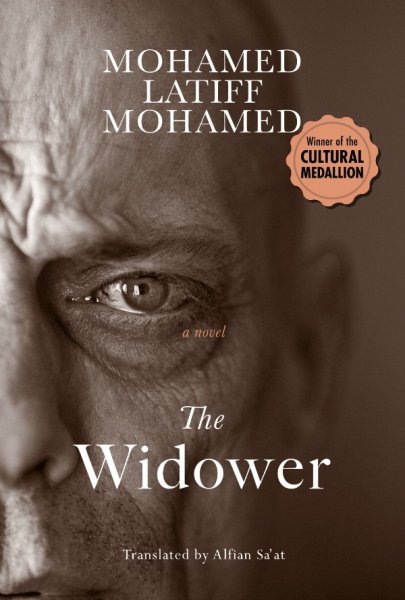
Of course, the list wouldn’t be complete without this novel written by this big-wig, first generation writer of the Malay lit scene, who also won the Cultural Medallion in 2013. In it, a former political detainee and professor Pak Karman mourns for his wife after she dies in a car accident, and slowly begins to go mad. As the protagonist becomes more and more unhinged, he has to discern fiction and reality and come to terms with his past actions. And if you need any more reason to read this, it was translated by Alfian Sa’at, big-deal poet and playwright.
You can get these books from either Epigram Singapore or Ethos Books.
